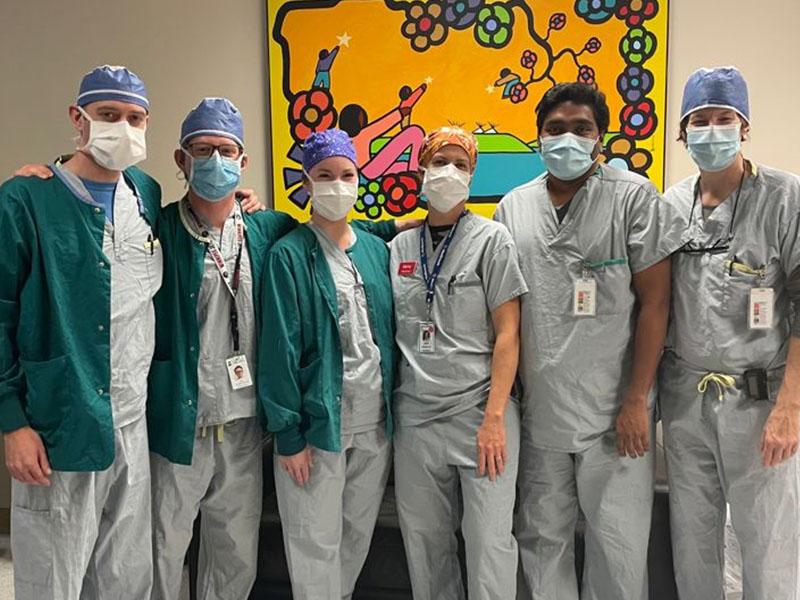Marnie Olson Career Spotlight
What area of health care do you work in? Where do you work?
"I am a clinical perfusionist and I work predominately in the Operating Room (OR)."
What are you responsible for as a Perfusionist? Please describe a typical day for yourself.
"Our main role is to keep patients alive during open heart surgery by providing cardiopulmonary bypass using a heart-lung machine. This allows the patients’ hearts to be repaired by the cardiac surgeon. We also provide other forms of specialized care, generally in critical care areas. These services include cell saving or autotransfusion, where the blood from a bleeding patient is washed and given back to them. This mitigates the number of transfusions needed using blood from the blood bank. We also provide Extra Corporeal Membrane Oxygenation (ECMO) to patients whose heart or lungs require even more support than conventional drugs and a ventilator can provide. Monitoring a patient on ECMO is a round-the-clock, at the bedside affair for perfusionists. In addition, we work in the cardiac catheterization lab and Cardiac Care Unit (CCU) when their patients require extra cardiac support by managing Intra-Aortic Balloon Pumps (IABP)."
"A typical day involves providing circulatory support for the cardiac surgery patient. We usually have two cardiac surgical patients in the operating room each day. Operating the heart-lung machine is technically demanding and very fast paced. The other forms of specialized care that we provide is usually to the sickest patients in the hospital and varies day to day."
How is your work-life balance as a Perfusionist?
"We can be quite busy as perfusionists! Our typical work day is Monday to Friday as 8 hour shifts. In addition to that we provide 24/7 standby to many different clinical departments in Saskatoon. Because we are on standby for emergency situations we can be called in at any time of day or night. This can include when someone has a heart attack, is in an accident or other unexpected bleeding situations. With that said, I make sure to prioritize time away from work by spending time with family and friends. Personally I love the fact that I can bike to work, and while away from work I snowboard and spend time at the lake."
Have you always wanted to be a Perfusionist?
"I did not always want to be a perfusionist. This was a career that I discovered when I was already a professional in another field. Perfusion sounded like an exciting field where I could make a difference in people’s lives. Prior to becoming a perfusionist I worked as a biomedical researcher. Perfusionists are unique in that we are usually a professional prior to entering the Cardiovascular Perfusion training program. Because we come from diverse backgrounds, such as respiratory therapists, nurses and exercise physiology, we bring a wealth of varied expertise. The Cardiovascular Perfusion program is about 2 years in duration and involves a combination of didactic and clinical experience."
Are there opportunities to further your career as a Perfusionist?
"Since we are a small group (nationwide there are less than 400 perfusionist) we have a close and active professional society. There are many opportunities for further training within the field."
Do you have any advice for students or new graduates looking to pursue a career as an Perfusionist?
"Take some time to peruse the websites of BCIT and Michener Institute to get a better understanding of the profession and program requirements. This is a technically demanding role where we provide a vital contribution to patient care. Please talk to us if you are interested in this exciting career. Clinical perfusion is a career that is in high demand."
What is the number one thing you love about being a Perfusionist?
"I love working in a fast paced environment where I have to make sound clinical judgements. Although most patients that we treat are often too sick to remember us, I know that my work has impact and that it saves lives."



